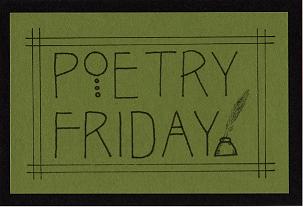
I can do all things through Christ who strengthens me. Philippians 4:13
Quote of the Day
1.08.2009
How Wet Is It?

1.05.2009
overheard
Chickadee: G'night, I love you.
Dandy: I love you too.
has something to say about
Chickadee,
Dandy,
older child adoption,
parenting,
quotables
1.04.2009
Magical Thinking: True Stories by Augusten Burroughs

The difference is that Wally Lamb's books was fiction, and Augusten Burroughs' book is not. So, whether I like it or not, Burroughs lives his life and has the courage to put it into print, and I have to grant some credit for that.
Yes, Magical Thinking: True Stories is funny. Yes, it was intriguing. I felt a bit like a tourist reading it. Much in the same way that I was an embarrassed sojourner whilst reading certain parts of Jeffrey Eugenides Middlesex
One of my Christmas gifts was Oliver Van DeMille's A Thomas Jefferson Education: Teaching a Generation of Leaders for the Twenty-first Century, which came highly recommended from my cousin (who is a published poet you know). I will review the whole book later, but for know I want to share with you the four classifications of stories: bent, broken, whole, and healing.
A. Bent stories portray evil as good and good as evil. Such stories are meant to enhance the evil tendencies of the reader, such as pornography and many horror books and movies. The best decision regarding Bent stories is to avoid them like the plague.Magical Thinking: True Stories? Broken.
B. Broken stories portray accurately evil as evil and good as good, but evil wins. Something is broken, not right, in need of fixing. Such books are not uplifting (in the common sense of the word), but can be transformation in a positive way. Broken stories can be very good for the reader if they motivate him or her to heal them, to fix them. The Communist Manifesto is a broken classic; so are and The Lord of the Flies and 1984, In each of these, evil wins; but they have been very motivating to me because I have felt a real need to help reverse their impact in the real world.
C. Whole stories are where good is good and good wins. Most of the classics are in this category, and readers should spend most of their time in such works.
D. Healing stories can be either Whole or Broken stories where the reader is profoundly moved, changed, or significantly improved by her reading experience.

has something to say about
books,
socio-political commentary
1.03.2009
The Nanny Diaries by Emma McLaughlin and Nicola Kraus

The Nanny Diaries describes the experience of a nanny working for an family in New York.
I would count this as beach reading, and as such, it is a good one. Entertaining and not sullied by gratuitous sex. If you know me in RL and want to borrow it, let me know, otherwise I'll be listing it on BookMooch.

1.02.2009
the great purging
Dandy and I cleaned out 2 of my 3 desks (when I get overwhelmed I just set up a new desk and close up the old one). I now have a "classes I am teaching/my personal writing" desk, and a "pay bills and keep the kids' records" desk, and an empty project table.
I have only just begun the great purging. I refuse to spend my year wrestling with stuff.

The Collector by Luci Shaw
Another beautiful Luci Shaw poem.

Here is the coding if you want a button with a link to this week's round-up.
:: this post is part of the Friday Poetry roundup hosted by A Year of Reading.

The Collector
In our house, the first of January
heralds a resolute simplicity. No,
not just the clean calendar on the
kitchen door, nor the new date
on letters; not even the bundling out
of the dry tree with its trail
of needles to the back porch,
but a return to routine. Clearing
the Christmas clutter
signals renewal, a re-ordering;
it is a woman taking off jewelry
before scrubbing the kitchen floor.
And so I lift away the mantel’s
necklace, a cedar swag pointed with
blue berries and white lights.
Down comes the rosy ribbon from
the decoy duck’s neck, the holly sprig
from the antique scale (my husband
was weighed on it when he was born),
the scarlet candles, riskily lop-
sided from all December’s burnings.
For myself, and for this shelf
across the fire-place brick,
I plan a chasteness free of dust
and trivia–a candle-stick or two,
a copper bowl, paired pottery crocks
to anchor arcs of bittersweet.
But with a barely noticed stealth
the wooden width accumulates
its own decor: a spendthrift of screws,
shipping labels, old lists,
a brass bell turned silent–its
clapper tongue plucked out by
the root; a pulled wishbone,
a curious knot of wood, an envelope
scribbled with verse, and in april,
part of a robin’s egg chipped
from the sky. Disorder spreads
so surely along the mantlepiece,
that by early June I feel as though
the only things I’ve failed
to keep there are
my New Year’s resolutions.
~Luci Shaw, from WinterSong: Christmas Readingsby Madeline L’Engle and Luci Shaw

Here is the coding if you want a button with a link to this week's round-up.
:: this post is part of the Friday Poetry roundup hosted by A Year of Reading.

1.01.2009
Caramelized Butternut Squash
This recipe is from The Barefoot Contessa cookbook:
Caramelized Butternut Squash
Heat oven to 400.
Trim off the ends and cut into 1 1/2 inch cubes:
2 butternut squash
Melt together:
6 Tb unsalted butter
1/4 C light brown sugar
1 1/2 t kosher salt
1/2 t freshly ground black pepper
Combine with squash cubes and spread onto baking sheet.
40 to 55 minutes.
Very yummmy. Did I mention that I ate too much? I probably will never need to eat again.

Subscribe to:
Posts (Atom)